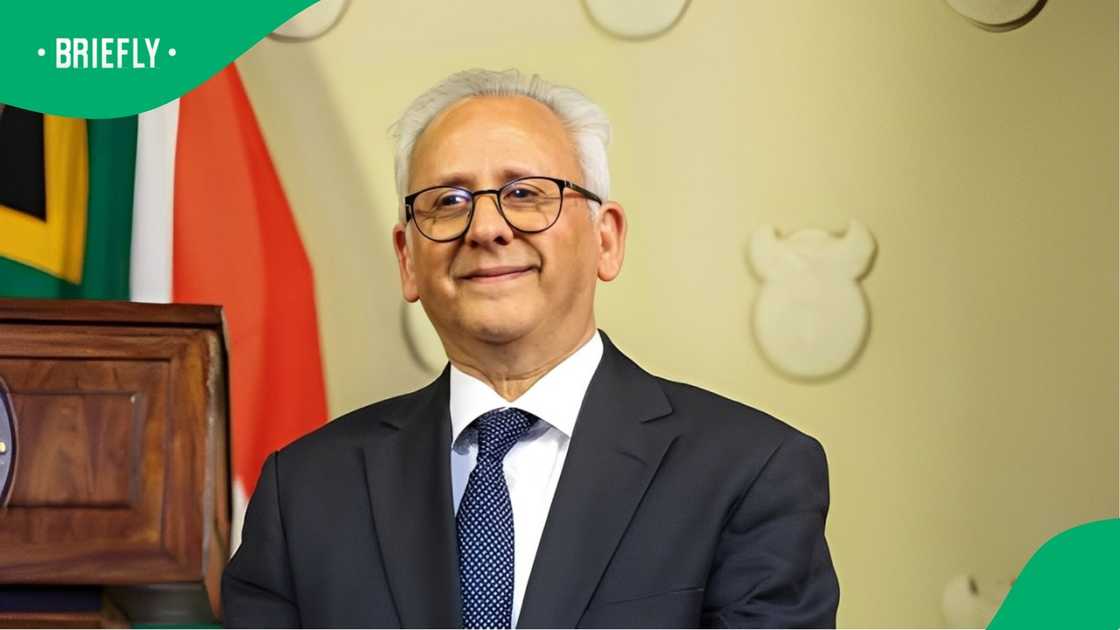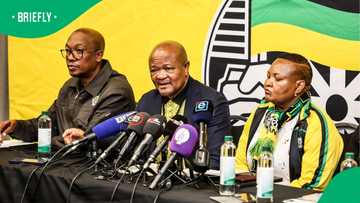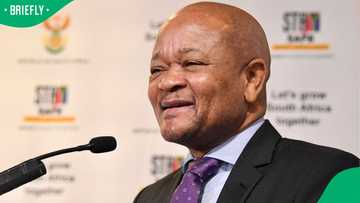Professor Firoz Cachalia Questions Senzo Mchunu’s Decision-Making Process Behind PKTT Disbandment
- Professor Firoz Cachalia weighed in on the decision to disband the Political Killings Task Team (PKTT)
- Police Minister Senzo Mchunu took the decision to disband the PKTT in December 2024
- Professor Cachalia replaced Mchunu after the latter was placed on leave by President Cyril Ramaphosa

Source: UGC
Briefly News journalist Byron Pillay has spent a decade reporting on the South African political landscape, crime and social issues
WESTERN CAPE – Professor Firoz Cachalia believes that there should have been some form of consultation held when the decision was made to disband the Political Killings Task Team (PKTT).
The Acting Police Minister made the admission while testifying before Parliament’s Ad Hoc Committee on 5 November 2025. Professor Cachalia took over the ministerial post after Senzo Mchunu was placed on leave following allegations made by Lieutenant General Nhlanhla Mkhwanazi in July 2025.
Mchunu was placed on leave by President Cyril Ramaphosa, who also established the Madlanga Commission of Inquiry to look into the alleagtions.

Read also
ANC defends Mchunu's continued role while he takes leave from Cabinet, South Africans weigh in
DON'T MISS IT: Stay Away From Fake News With Our Short, Free Fact-Checking Course. Join And Get Certified!
Cachalia addresses PKTT disbandment
During his testimony before Parliament, Cachalia noted that the Interministerial Committee had not met for approximately two years before Mchunu took the decision to disband the PKTT.
He stated that with hindsight, there ought to have been consultation with colleagues in the cabinet, whose judgment about the disbandment of such an initiative would have been essential to arrive at the right decision.
Professor Cachalia added that his issue was not that the Task Team was disbanded, but rather how that decision was reached.
“It’s the process that was followed. How did he arrive at that decision. Who did he consult with? Were the reasons sound? And then how the decision was communicated,” Professor Cachalia explained.
Mchunu's decision to disband the task team has been a huge point of discussion during both the Madlanga Commission and the Ad Hoc Committee. The closure of the task team led to Lieutenant General Mkhwanazi's press briefing, where he alleged that Mchunu was helping protect criminal elements.

Read also
Police Minister Senzo Mchunu hands over electronic devices to SAPS amid ongoing investigations
Mkhwanazi claimed that the police minister called for the disbandment of the task team because it was investigating heads of criminal cartels that were operating in the country. Mchunu has continuously denied the allegations.
Other stories about Mchunu and the Ad Hoc Committee
- Mchunu admitted that he was concerned by Brown Mogotsi’s access to the PKTT disbandment letter.
- The Minister of Police took full responsibility for the letter that disbanded the PKTT.
- Mchunu said that he consulted with President Cyril Ramaphosa after disbanding the PKTT.
- Bheki Cele alleged that Mchunu sought funding from Vusimuzi “Cat” Matlala for his presidential ambitions.
- Parliamentarians grilled Mchunu over his failure to produce evidence of Lt Gen Mkhwanazi’s threats.
African National Congress defends Mchunu's continued role
Briefly News reported that Mchunu allegedly indicated his willingness to step aside from organisational work in the African National Congress.
The decision came after Mchunu was implicated in political interference allegations made by General Nhlanhla Mkhwanazi.
Despite his willingness, the ANC said it was happy for Mchuu to continue his duties, sparking reactions online.
PAY ATTENTION: Follow Briefly News on Twitter and never miss the hottest topics! Find us at @brieflyza!
Source: Briefly News

